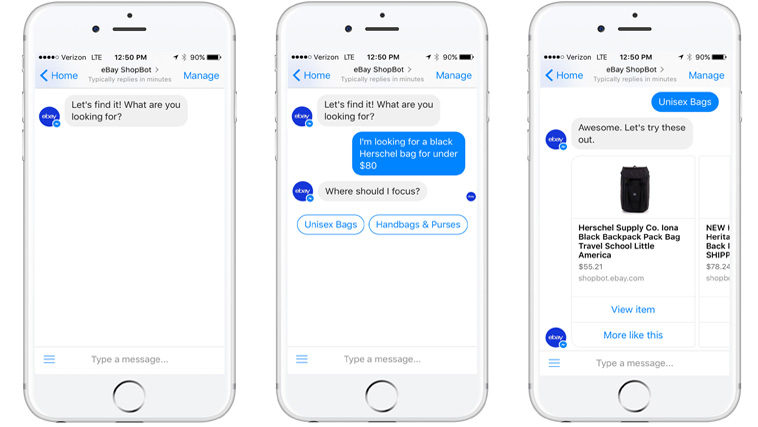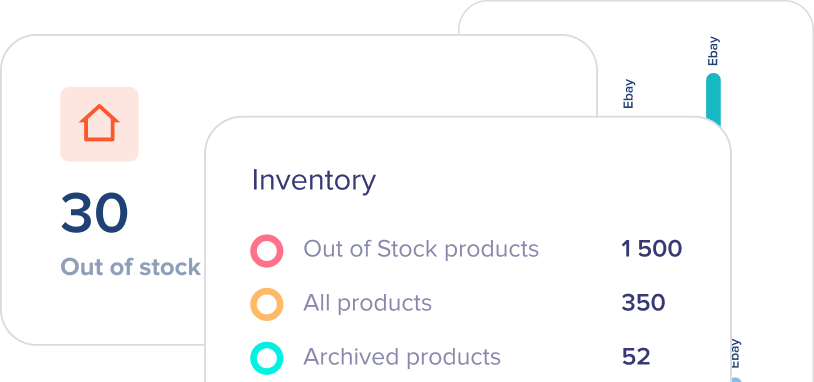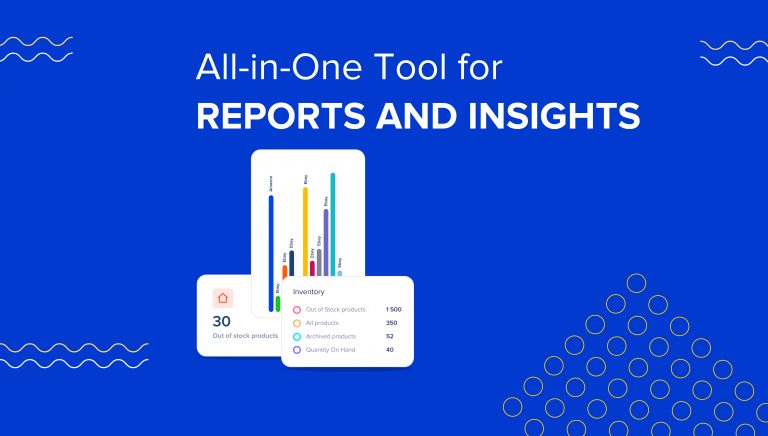The use of artificial intelligence in ecommerce changed the face of this industry once and forever due to all the benefits it offers.

You can find many cases of the practice of AI in the e-commerce industry. These include the use of chatbots, CRM tools, IoT and many more.
As long as machines learn how to imitate human behaviour, they can help us do specific tasks. It refers especially to the ones, which demand a lot of time and accuracy.
The input of AI in e-commerce puts aside the burden of managing those repetitive tasks. It refers mainly to the issues like sending personalized emails to customers or decision-making processes for business growth.
With the help of this article, we will introduce the essence of AI and the ways it supports growing e-commerce. After that, we will show the best AI Inventory Management practices via showcasing eSwap’s software features.
What is Artificial Intelligence?
Artificial Intelligence or AI is a well-known branch of computer science. It is mainly aimed at building smart technologies. The use of those technologies assumes performing certain tasks which otherwise would demand human intelligence. In other words, AI is the simulation of human intelligence in machines.
The input of AI is reflected not only in eCommerce but also in finance and healthcare.
There are two main categories for AI:
- Weak Artificial Intelligence
- Strong Artificial Intelligence
Weak AI, which is also called Narrow AI, allows the performing of one particular task. Weak AI lacks the human consciousness, even though it’s able to stimulate it nearly all the times.
Good examples of Weak AI performance include the application of it in certain video games like playing chess. The same refers to Amazon’s Alexa and Apple’s Siri.
Strong AI, on the contrary to weak, allows performing human-like actions. There are different references for Strong AI, such as True Intelligence or Artificial General Intelligence (AGI). It is worth mentioning that Strong AI is still entirely theoretical. Anyways, strong AI assumes practising the ability to solve puzzles, make judgements and communicate.
Let’s now discuss the main benefits that artificial intelligence in e-commerce could provide.
AI in eCommerce Examples
Customers dictate the future of any eCommerce sales channel. It goes without saying that customer satisfaction is the number one priority for sellers. In order to understand the customer demand better and fulfil their requirements, many started considering the use of artificial intelligence or machine learning. Due to the input which machine learning can provide, the sellers are able to improve the customer buying experience, improve the internal and external business processes. Machine learning, more importantly, is able to drive insights and fight fraud cases by scammers.
As long as you put customer satisfaction first and use the inputs of AI in eCommerce, there are higher chances of getting repeat purchases from your customers.
Due to our B2B eCommerce software, the overall process becomes seamless. eSwap offers all the benefits which eCommerce business automation could offer to the users, like real-time inventory syncing.
CRM
It is not big news that many customers get disappointed once they don’t find the right product via their searches. As long as the availability of eCommerce sales channels is quite large nowadays, keeping your customers in your sales channel is a challenging task.
Irrelevant product search results are in the past nowadays due to the input of AI in eCommerce.
Twiggle’s example services at its best. This company uses natural language processing and machine learning for improving product search results. AI tackles the engines to think like humans.
Data collection for CRM purposes heavily depended on human resources in the past. Nowadays, it’s not a big problem anymore. As long sales automation is a trend since 2017, data collection became easier.
Nowadays the CRM systems can gather a lot of data about customers, their product preference and the sales channels they use the most.
Chatbots
It is quite normal to shop through chatbots nowadays. Online sellers use chatbot services to bring personalized, branded, and even more intelligent services. Apart from it, customers get a 24/7 service. With the help of chatbots, online shopping is quick. Instead of relying on human assistance, the buyers get the same service in a cost-efficient manner.

With the help of chatbots, the buyers can get instant answers. In addition, the sellers can use chatbots to send sales notifications and reminders. A good example of an AI-enhanced chatbot is eBay’s shopbot.
Inventory Management
Nowadays keeping a track of an accurate inventory is possible all due to the operations which enhances AI. Keeping the track of the stock could turn into an absolute nightmare without automated tools like eSwap. The input of artificial intelligence in ecommerce is highly valuable especially for multichannel sales syncing.
There are many examples of AI-enhanced inventory management features like Catalogue Management is, for example. With the help of this tool, the users get product names, descriptions, prices and other related information quickly. With the tailored AI, the users can get the exact match of their search. There are so many minor details that matter in this context, like the colour, texture, style, size, etc.
The same system works for product pricing. It particularly refers to comparing the product prices in the marketplace. As long as you cannot set relevant prices, you will lose the game. Pricing competitiveness matters as long as you sell. There are multiple pricing tools like Prycinc is.
One of the major inputs of AI in inventory management remains demand forecasting. Prediction becomes possible via using past purchase data. It helps not only in this context, but also prevents inventory shrinkage, minimizes the costs for storage. The same is true for inventory stockouts or overstocking.
The above-mentioned examples are just a few of how artificial intelligence in ecommerce can boost sales. There are so many more like product visual search, voice search and many more.







